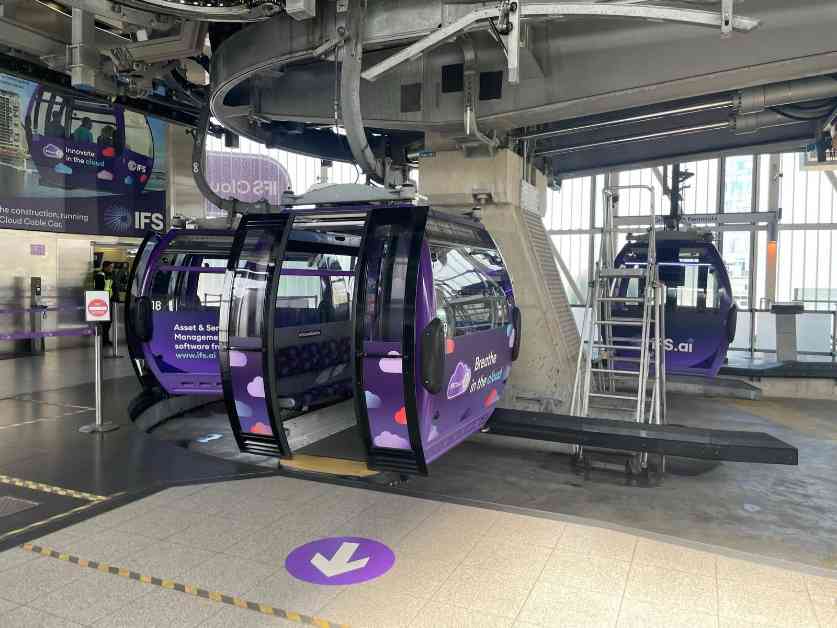London Cable Car Workers Stand Strong in Six-Month Strike for Fair Pay
Maintenance and operations workers at London Cable Car are gearing up for a battle that will see them striking every Saturday for a staggering six months over a pay dispute. The conflict stems from a lack of satisfactory pay offers from Doppelmayr Cable Car (DCC), the company responsible for the operation of the cable car system.
The Rail, Maritime and Transport union (RMT) has stepped in to support its members at DCC, emphasizing the importance of fair compensation for the hard work these individuals put in to ensure the smooth functioning of this unique form of transportation in London. Without a resolution to the pay dispute, the cable car workers are prepared to continue their strike action until February of next year.
RMT general secretary Mick Lynch expressed disappointment in the behavior of Doppelmayr management, highlighting their refusal to engage in productive dialogue with the union to reach a mutually beneficial agreement. Instead, the company has chosen to escalate the dispute, seemingly underestimating the resolve of RMT members.
Lynch stated, “Our members work tirelessly to maintain the London Cable Car system, yet they are met with disrespect and disregard from management. This mistreatment cannot go unaddressed, which is why our workers are committed to striking every Saturday for six months unless a fair and just settlement is achieved.”
Impact of the Strike on London’s Transportation Network
The ongoing strike by London Cable Car workers is set to have a significant impact on the city’s transportation network, particularly on weekends when the service sees a higher volume of passengers. With the cable car system being a popular tourist attraction and a convenient mode of transport for locals, the absence of operational staff on Saturdays will undoubtedly cause disruptions and inconvenience for commuters.
As the strike stretches over a period of six months, the cumulative effect on London’s transportation infrastructure could be substantial. Alternative modes of transport may become more congested as individuals seek alternative routes to navigate the city, leading to potential delays and overcrowding on buses, trains, and other transport services.
The prolonged strike action also raises concerns about the economic impact on businesses that rely on the cable car system to attract customers and tourists. With reduced accessibility to this iconic mode of transport, businesses in the vicinity may experience a decline in foot traffic and revenue, further exacerbating the challenges faced by the local economy in the wake of the COVID-19 pandemic.
Resolution and Negotiation Efforts
In the face of the escalating labor dispute, efforts to resolve the pay conflict between London Cable Car workers and Doppelmayr management are crucial to prevent prolonged disruptions to the transportation network and mitigate the economic repercussions of the strike. Negotiation and mediation are essential to finding a middle ground that addresses the concerns of both parties and ensures a fair and sustainable outcome.
The involvement of the RMT in advocating for the rights of its members underscores the importance of collective bargaining and union representation in safeguarding the interests of workers. By standing together in solidarity, the cable car workers demonstrate their commitment to fair treatment and equitable compensation for their contributions to the London transport system.
As the strike continues to unfold over the coming months, stakeholders, including Doppelmayr management, union representatives, and government officials, must engage in constructive dialogue to seek a resolution that upholds the principles of fairness and justice. Finding common ground through negotiation and compromise is essential to achieving a positive outcome that benefits all parties involved.












